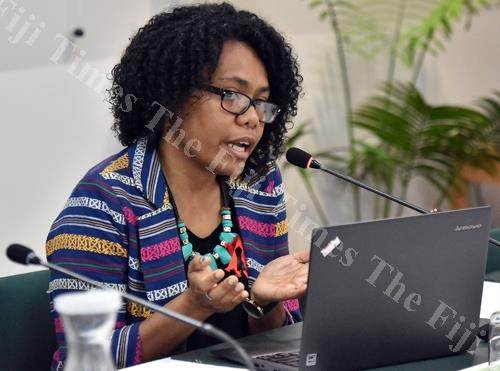SUVA, 29 AUGUST 2018 (FCOSS) – There are no short cuts or easy solutions to dealing with community grievances and disputes arising from mining or extraction says the Fiji Council of Social Services (FCOSS).
FCOSS executive director, Vani Catanasiga shared the sentiments after presenting to the UNDP-organised ”Addressing grievances and disputes from the Development Mineral” Capacity Building Workshop in Nadi
Catanasiga who presented on “Free, Prior, Informed Consent – A proactive approach to dealing with community grievances and disputes in extraction” said while development stakeholders favour a faster and more efficient approach to dealing with community grievances and disputes, this approach undermined the community’s right to decide on projects that could affect them adversely.
“Working to obtain Free, Prior and Informed Consent or FPIC is about involving communities the right way so that development can have a lasting and positive legacy for both communities and companies,” she said.
“FPIC is an intentional process that should avail to affected communities information on government, business or banks that are stakeholders in the project, project details in their preferred language as well as convening community discussions that involve everyone – including women, children, elders, non-indigenous neighboring settlements – to discuss project terms.”
She said using FPIC could be a proactive approach to dealing with community grievances arising from access to and utilisation of natural resources.
“So yes it may seem, a long and sometimes difficult process but ultimately as you mainstream FPIC into your approaches, you indirectly build communities’ sense of ownership into ensuring the success of the project because you have included them,” she said.
Catanasiga said FPIC is emerging as a best practice approach for people centred development around the world because it promotes the inclusion of all communities that will be affected by proposed development projects.





